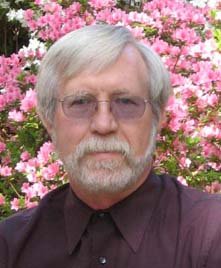Song of God
Song of God
Brock Hansen
May 21, 2004
Theology is making meaning, making sense out of our
lives in terms of what we believe to be the nature of ultimate reality. Verna Dozier in Dream of God
On the third day of the ninth month in the 57th
year of this incarnation, I heard a powerful song. You will believe that I am crazy if I tell
you that I think it was the song of God and that I heard it in the pulsing
chorus of the 17 year cicadas in the ecstasy of their mating frenzy. This is what it said to me:
Energy surrounds us, permeates us, and creates us. We are born of energy and we are moved by
energy. The universe is a constant
symphony of vibrating energy that we measure sometimes as cosmic noise in our
radio telescopes and sometimes as strikingly similar noise in the rattle of
millions of cicadas.
There is wonderful harmony in the energy of the universe if
we but have ears to hear. We often
choose, however, to listen only to one instrument, one channel, one motif,
because the music of God can be overwhelming and exhausting in its
complexity. It requires patience and
discipline to listen to even a small part, and for those who are unprepared, it
can be frightening.
The temptation is to listen only to the familiar and
therefore comfortable parts. And
repetition of the familiar and comfortable is degrading. Complex harmony is reduced to trivial
jingle. We believe that we know the
music when we can recognize only a few notes.
And yet we can become fascinated even by degraded music and
seduced into dancing along to a ditty as monotonous as “Who let the dogs out.”
It seems to me that we twenty first century Americans are
fascinated by the simple rhythms of power and violence, and that our dance is
scaring the world. The lusty and violent
images with which we often fill our minds and the greed and anger that often
fill our hearts are contagious and dangerous, and yet we dance on in ignorance
with adolescent (forgive me, my younger friends) exuberance and a brash sense
of invincibility. Cultures that spent
250 years building a hymn to the sun and moon in Chaco Canyon or 900 years
nurturing a moss garden in Kyoto shake their heads. We are not the first to be fascinated by
power and violence. Our dance is not the
only scary one. But it is currently the
loudest and therefore, to some, the scariest.
It seems to me that it must be our goal, our mission, to
quiet down, beginning with our own lives, in order to learn to listen, to train
our ears and tune and our minds to the beautiful, if overwhelmingly complex,
song of God. It is a song that
simultaneously requires and inspires limitless compassion.

